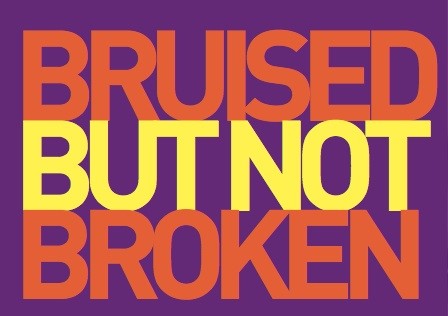Bruised but not broken

For brands with sustainability and CSR sins in their pasts, the future may require penance. How can companies transform their bruised reputations to become ethical saints? David Benady investigates.
There are few businesses that make more of a song and dance about their high ethical standards than the purveyors of tobacco. Japan Tobacco International boasts online that it is a ‘Global top employer,’ offers invaluable advice to farming communities and is a leader in sustainability. “We are driven by our understanding of what it means to act in the interest of the business, people and the environment,” the marketer of the Winston, Camel and Glamour brands proclaims. Meanwhile, British American Tobacco (BAT) is equally high- minded, saying it is committed to sustainability and “harm reduction” by promoting e-cigarettes and that it combats cigarette smuggling.
Marketing an addictive, cancer-causing product is apparently no barrier to basking in the saintly glow of corporate social responsibility. But can businesses that are perceived as corporate sinners ever really pay penance for those sins and be recast as saints? This may be a tall order for the tobacco companies and others which have been demonised for their activities.
But other businesses have turned reputational recovery into their raison d’etre and believe they have found salvation. Nike was hit by accusations of using child labour in its supply chain in the 1990s and has attempted to recast itself as a leader in ethical business. Banks are busily trying to slough off their image as greedy overlords and are looking to slip on the halo of sainthood through some fundamental ethical reinvention. Junk food brands, fashion retailers, political parties and even celebrities are making the journey from sinners to saints.
But can cigarette companies whose products are so closely associated with causing lung cancer and ill-health ever recover their reputations? A spokesman for BAT says it was the first of the tobacco giants to acknowledge that smoking was bad for health back in 2002 and has been on a journey to rebuild its corporate reputation ever since. And he claims this is working. BAT has maintained its place on the Dow Jones Sustainability index for the 13th year running. “That is acknowledgement of our stewardship in the way the product is made, marketed and sold,” says Will Hill, senior press relations manager at BAT. He adds, “It is a constantly evolving journey that all companies are on. I don’t think there will ever be a point in time where it is job done as new challenges come down the line.”
He adds that the tobacco industry pays £12bn in taxes to the UK government every year, against health costs associated with smoking of some £7bn. So overall, they make a positive economic contribution. The big drive for BAT is marketing e-cigarettes, positioned as an effective method of giving up smoking and part of the company’s ‘harm reduction’ strategy.
Not everyone is convinced that big tobacco can ever build a positive corporate reputation. Giles Gibbons is chief executive of ethical consultancy Good Business, which he co-founded with David Cameron’s Big Society adviser Steve Hilton. “We will work for any company that actually believes it wants to change for the better – there is no point just working for the good guys,” he says. “The only ones I can’t say have changed fundamentally are the cigarette companies.” He says tobacco companies are beyond redemption given the knowledge we now have about the health dangers of smoking. “They give corporate social responsibility a bad name.”
He points to Nike as a company that has successfully managed to go from being widely maligned to rebuilding its corporate reputation, though he points out that this has taken decades. “It takes time for these examples to play out as the business needs to accept the error of its ways (whether the wrongdoing was intentional or not) and then see whether it genuinely changes beyond regulatory pressure and goes further than it needs to.”
But it can be tough to move beyond the denial stage when the company is involved in a seriously profitable business, says design and brand consultant Simon Myers of global strategic brand firm Prophet. “The cigarette companies don’t really have to change too much yet, they are making so much money from their existing business model. When revenues are good it is very hard to convince anyone of the need to change. It is only when the numbers start to go south that the people who advocate change are listened to in any meaningful way.”
He points to the reputational turnaround at McDonald’s which has been ongoing for the past decade and a half as the burger chain attempts to recast itself as a purveyor of quality food. “The numbers were pointing in the wrong direction and they were getting the wrong kind of people coming in and not spending enough money. Rivals were coming in which were more expensive and taking their audience.” He argues it was the financial problems that led McDonald’s to recast itself as an ethical seller of quality food, rather than any Damascene moral conversion.
But he is sceptical about whether companies can convincingly change their core purpose, however much effort and sincerity they put into it. He points to Innocent Drinks, which was founded in 2000 with a strong set of ethical principles – treating suppliers fairly, marketing healthy products. “Lots of companies said we would like to be like them, but the change needed to become like Innocent is so great, you would be better off starting off a new company,” he says.
The long term nature of creating an ethical turnaround means that companies have to work below the surface for decades before they have the right to wear the halo. Nike faced allegations throughout the 1990s that its strategy of outsourcing manufacturing was leading to abusive conditions and low wages for the people making its trainers and clothes. It wasn’t until 1998 that it confronted this crisis when the company’s CEO Phil Knight acknowledged that the furore was damaging the brand and hitting sales. “The Nike product has become synonymous with slave wages, forced overtime and arbitrary abuse,” he said. “I truly believe the American consumer doesn’t want to buy products made under abusive conditions.”
Nike’s reputational turnaround is still underway nearly 20 years later. It has involved auditing hundreds of factories, it helped create the “Fair Labor Association” and monitors a code of conduct on labour rights. Vice president of sustainable business and innovation Hannah Jones told the Guardian that sustainability is now at the heart of the company’s strategy. “It’s gone from being risk management, a reputation management function to one that’s about innovation and literally transforming the way we do business.” She admitted that Nike had been defensive when it was attacked for its labour practices and it had taken time for it to admit that there was a problem. Only then could
it set about solving it. But she added that nearly 20 years later, Nike is only about 20% of its way along the journey to becoming a sustainable brand.
According to sustainability expert Solitaire Townsend, co-founder of London-based consultancy Futerra Sustainability Communications, there are four steps companies take on the road to redemption. She likens a corporate turnaround to the steps an individual takes to free themselves from alcoholism or drug addiction.
First, companies adopt a defensive position and try to discount the criticisms of campaigners and the media – whether about poor treatment of workers, environmental damage or products that harm consumers. During the ‘denial stage’ they try to discredit the arguments of critics, question their logic, pan their research and question their moral standards. In most cases, this fails.
“THE CIGARETTE COMPANIES DON’T REALLY HAVE TO CHANGE TOO MUCH YET, THEY ARE MAKING SO MUCH MONEY FROM THEIR EXISTING BUSINESS MODEL”
The second and vital stage is admitting internally to the problem. She says this might come after a change of senior management or when a new generation of managers comes through. She adds, “Then there is either monumental greenwash and an attempt to manipulate and control and manage the reputation or a genuine attempt to deal with the problem.”
When honest appraisal of the problem has been made, the business can attempt to repair the damage. This will involve engaging with critics, campaigners and industry experts to get their feedback on how the problem should be tackled and working with them to solve the crisis Only after these stages have been reached – and that can take many years – should a company take the story of its turnaround to the media and start talking openly about the solution. “Step four should be approached with the utmost caution,” she says.
Townsend says the four steps are the same for every company, wherever they are around the world. She has worked with businesses in South America and Asia and notes that there can be differences of emphasis in the approach companies require.
China is a market in which various companies have suffered from reputational crises. One of the biggest was the 2008 contaminated food scandal, in which melamine was added to milk, infant formula and other foods. Thousands of infants were hospitalised and six died. The scandal shredded the reputations of milk producers such as Sanlu, Yili and Yashili. Townsend says companies trying repair their reputations in China need to convince experts, regulators and Communist Party members that they have tackled the crisis. “You’ve got a different public affairs scenario over there, it is crucial to talk to regulators and local party officials. You take the same four steps, but step three is crucial,” she says.
The key to overcoming a reputational crisis is to constantly have an eye on the future and to be prepared to rethink the core strategy of the business. Nick Liddell, strategy director at global brand consultancy Dragon Rouge, points to discount clothes retailer Primark, which is on its own journey to repair its battered image after accusations of using child labour in its supply chain. It was implicated along with many other fashion retailers in sourcing goods from the Rana Plaza factory in Bangladesh, which collapsed in 2013 killing 1,129 people.
“FOR COMPANIES, IT IS ABOUT HOW THEY HANDLE THEIR SINS. THEY HAVE TO CONFESS, SAY A MEA CULPA AND GET ON THEIR KNEES AND DO PENANCE”
The retailer has joined the Ethical Trading Initiative, which helps companies audit their supply chain, and publishes a sustainability report. But Liddell believes companies need to think about how they can innovate for an uncertain future in ways that will create a sustainable business model.
For Primark, this means rethinking its core offer of fast- changing fashion at low prices. Moving this forward would mean shifting into clothes rental, allowing its customers to hire garments for a weekend, return them and move on to other fashions. “The interesting thing for a business like that is how you deliver the same benefit to convince people that you have an eye on the future. You are not going to stop people wanting new items of clothing. How do you deliver the same benefit through a different, innovative business model?”
He points to subscription fashion brands such as Girl Meets Dress, which rents out dresses for a subscription fee. He believes this model could allow Primark to continue its offer of fast fashion, but also become more sustainable as the clothes are shared rather than worn once then thrown away.
However hard companies attempt to recreate their image in a positive light, it is much easier for celebrities and media personalities to go from sinner to saint. Vicky Bullen, chief executive of branding agency Coley Porter Bell, notes that the British royal family has successfully relaunched itself after a dire period in the 1990s and the bad reputation it earned following the death of Princess Diana. Another is David Beckham, who went into purgatory after being sent off in the game against Argentina in the 1998 World Cup. His reputation was restored after scoring in the 93rd minute against Greece in a qualifier to secure England’s place in the 2002 World Cup. He fell from favour again after news of an illicit affair, but as Bullen notes, “Now he is back again as a well respected British icon.”
But she adds, “For companies it is about how they handle their sins. They have to confess, say a mea culpa and get on their knees and do penance.”


